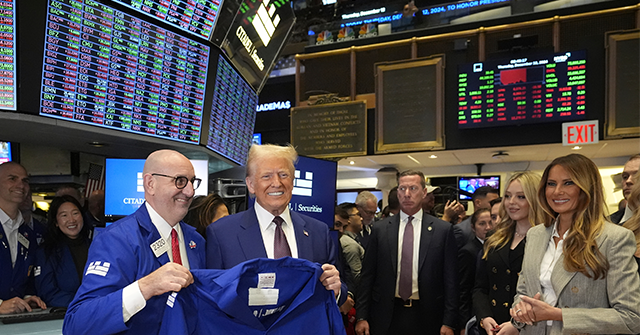On December 12, 2024, President-elect Donald Trump rang the opening bell at the New York Stock Exchange (NYSE), coinciding with his recognition as TIME Magazine’s Man of the Year. Trump humorously noted the uniqueness of this joint occasion, signaling the importance of such moments in the broader narrative of his leadership. Throughout his first term, Trump frequently used stock market performance as a barometer of success for his administration, which aligned with the attitudes of many Americans. While analysts caution against overly equating stock market trends with economic health, the reality remains: a significant majority of Americans view the stock market as a reflection of personal and national economic well-being.
According to a recent YouGov survey commissioned by The Economist, 62% of Americans believe the stock market’s performance is either somewhat or very important, with 40% considering it somewhat important and 22% deeming it very important. The perception of the stock market transcends demographic lines, showing that irrespective of race or ethnicity, individuals are inclined to regard the market as crucial, both in a general economic sense and personally. Notably, 65% of Black Americans view the stock market as important, slightly more than their white counterparts, with some representation among Hispanic Americans as well. In contrast, only 15% of the population feels indifferently toward the stock market’s fluctuations, indicating a shared interest that aligns with Trump’s engagement in market discussions.
Interestingly, support for the stock market does not solely stem from wealthier demographics. Among Americans earning under $50,000, almost half perceive the stock market as significant. This perspective is also mirrored among those earning between $50,000 and $100,000, where 65% find the market important. Even for those earning over $100,000, a sizable percentage considers the stock market vital. This demonstrates that Trump’s emphasis on the stock market dovetails with his populist messaging, showcasing a connection to the sentiments of a broader constituency compared to traditional establishment politicians who may shy away from such discussions.
When assessing the economic environment during Trump’s presidency, it is clear that the stock market saw remarkable successes. The S&P 500 index experienced a roughly 67% growth during his first term, spurred by investor optimism sparked primarily by tax cuts and deregulation initiatives. The positive trend established during his administration was complemented by a substantial 15% gain immediately following the 2016 election. The stock market’s ascent during this period arguably allowed Trump to position himself as a successful economic steward, further solidifying his strong ties to populist sentiment where many Americans equate rising stock values with their financial security and prosperity.
In contrast, under President Joe Biden, the S&P 500 marked a 52.8% increase since he took office in January 2021. At the same juncture in Trump’s presidency, the market had risen approximately 61%. Thus, the comparative analysis indicates that Trump was able to command a more significant rise in the market during his tenure, potentially framing Biden’s performance in a less favorable light. As Trump’s focus on rallying support continues, the recent uptick of around 5.5% in the S&P 500 since the election and a 10% rise in the Russell 2000 index reiterate the ongoing importance of stock performance in the political discourse.
As Trump takes the stage again, it is expected that he will keep heralding stock market gains as a testament to his policies, fostering a narrative of economic success that resonates with many Americans’ perceptions of their financial situation. By intertwining his political narrative with stock market performance, Trump connects directly with public sentiments that see market health as synonymous with broader economic vitality. This sets the stage for an ongoing conversation about the intertwining fates of political narratives and financial markets as the electorate watches closely the implications for their financial futures and the economy overall.

